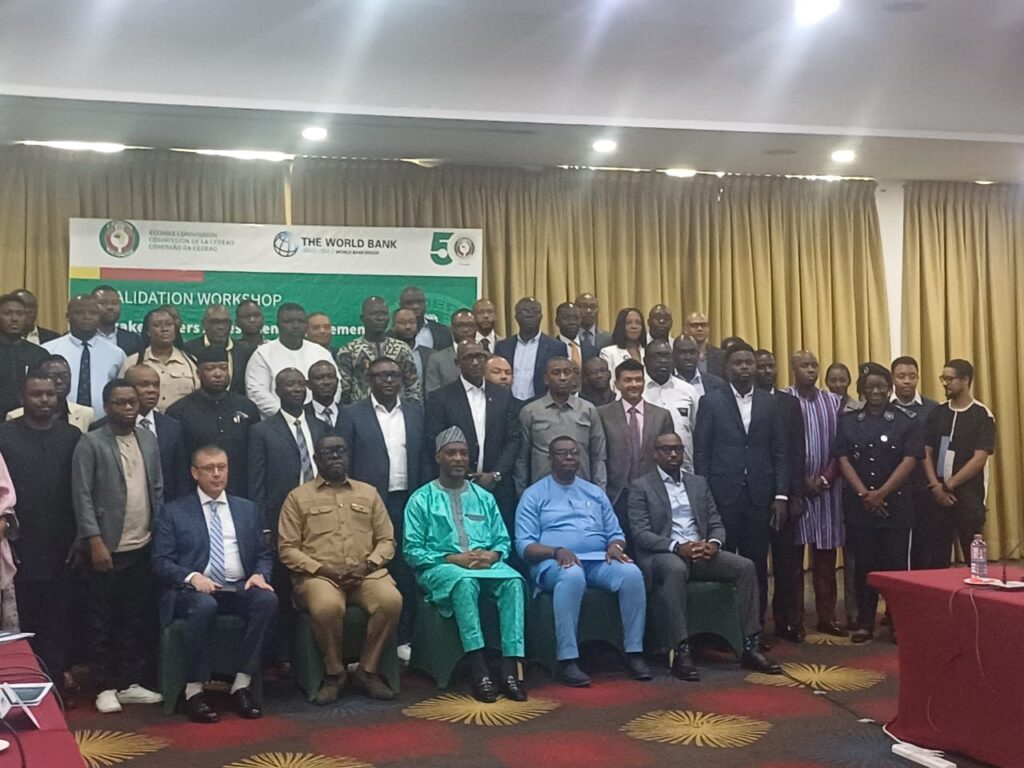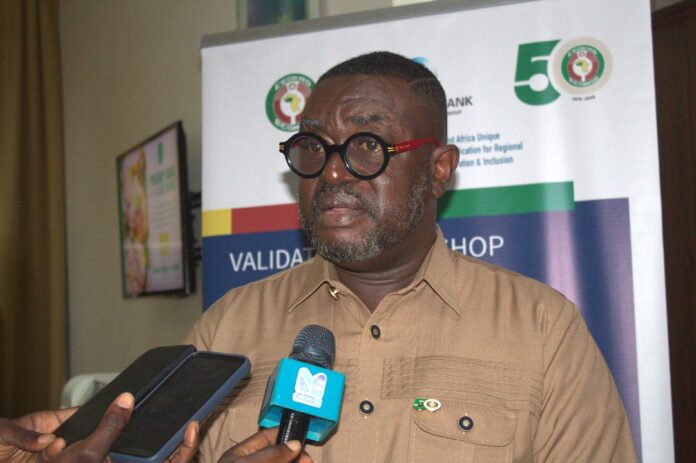Albert Siaw-Boateng, Coordinator of the West Africa Unique Identification for Regional Integration and Inclusion (WURI) at the ECOWAS Commission, has disclosed a groundbreaking initiative to develop a unique identification (ID) number for all citizens and non-citizens within the West African bloc.
The initiative is a core part of efforts to enhance the region’s security framework and streamline identification systems.
He noted that Ghana has already begun implementing the ECOWAS biometric card—commonly known as the Ghana Card—which was adopted by the Authority of Heads of State in 2014.

The card also functions as a travel document and is integrated with critical national services such as social security, banking, and driver licensing.
“That card has a unique identification number; it’s linked to social security and required for opening bank accounts or acquiring a driver’s license,” Mr. Siaw-Boateng explained during the opening of a four-day stakeholder validation workshop in Accra.
The World Bank-funded WURI programme, which began in 2018, is steering the region toward digital identification.
According to Mr. Siaw-Boateng, the goal is for all ECOWAS member states to adopt interoperable unique ID numbers. A consultant-led study on stakeholders’ assessment and system interoperability has been completed and is now up for validation by member states.
“We now have two key deliverables: stakeholder assessment and interoperability strategy. The goal is seamless cross-border access to services—so that, for instance, someone moving from Ghana to Togo can still access essential social services,” he emphasized.
Initially, six countries—Benin, Togo, Côte d’Ivoire, Guinea, Niger, and Burkina Faso—participated in the programme. However, Guinea has since withdrawn.
As for implementation timelines, Mr. Siaw-Boateng stated that a roadmap will be adopted following the validation process. Full implementation across all member states is targeted for 2027–2028, taking into account the time required to procure and install necessary technological infrastructure.
By Kwaku Sakyi-Danso/thenewsbulletin24.com


